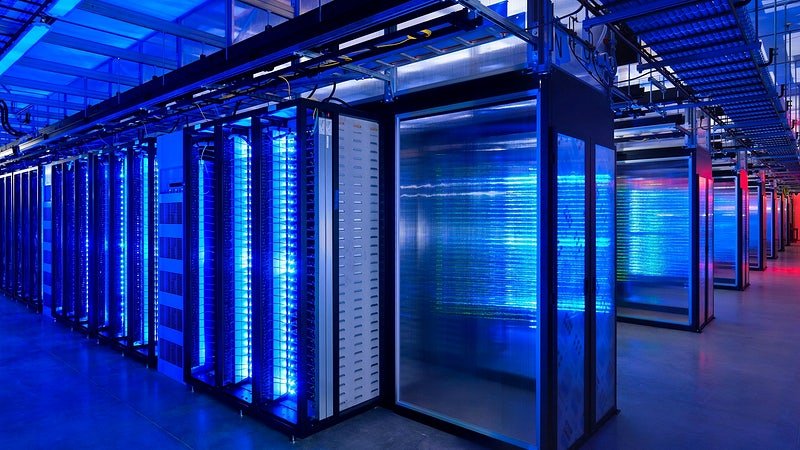Energy Security in The Middle East and Africa: The Overlooked Pillar of AI Sovereignty
Powerhungry Server Racks in Data Centers Powering Large Language Models (Image Source)
Over a hundred thousand oil executives gathered to discuss artificial intelligence and energy, at the ADIPEC (Abu Dhabi International Petroleum Exhibition & Conference) meeting in early November 2024. The Economist reported that they hailed AI as a future capable of transforming the energy business, cutting greenhouse gas emissions while improving their bottom line. But the much more significant regional trend left undiscussed is not what AI has to offer these oil rich energy countries, but rather the boon that their ready energy sources may offer other AI.
AI superpowers are dependent on energy and capital. The Middle East is an epicenter of both oil and money, making it a natural site of rapid expansion, and tangentially, AI superpower resource competition. The Middle East has some of the lowest electricity tariffs globally, and high viability for the use of solar power due to their desert climate as noted by Global Petrol Prices. The UAE, in particular, is expected to nearly triple their Data Center Critical IT power by 2026 according to Semianalysis. Microsoft launched its Qatar datacenter in 2022, and has announced plans to establish another in Saudi Arabia.
The rise of large-language models like ChatGPT prompted nations racing to build their own AI infrastructures to train LLMs locally. Nvidia, which supplies the world’s most advanced GPUs powering AI data centers, popularized the notion of Sovereign AI. Countries worldwide see it as their strategic interest to build artificial intelligence with their own resources and data, especially their unique languages and history. The Wall Street Journal reports that Denmark, for example, built their new supercomputer Gefion with 1528 Nvidia GPUs, funded with $100 million from Novo Nordisk foundation, the charitable foundation of the nation and Europe’s most valuable company.
Not all nations have the capacity to build energy-hungry LLMs trained on capital-intensive GPUs, but some countries in southwest Asia and North Africa are particularly suited to provide AI energy sources. Analysts have heralded the Middle East and Africa region’s tech market as a sign of the struggle between external geopolitical players such as China and the United States, per The Stack. But multinational corporations should be given equal attention, as several have developed and stand to increase their outsized influence over developing AI markets and energy supply in the region.
The hunt for more and cheaper energy, and the subsequent push for innovation from tech companies in the AI space continues to intensify. Google signed a deal in early October 2024 to use nuclear energy to power its AI data centers, with its first reactor planned to begin working within the next decade. While the exact reactor locations have not yet been disclosed, the extensive existing infrastructure Google has invested in Africa including a data center in Cape Town and points in Nigeria and Kenya positions the continent as a likely place for a future reactor. Google committed to digital advancements in Africa, with AI projected to contribute over 30 billion dollars to developing African democracies in the next decade, according to Techpoint Africa.
While the last conference in Abu Dhabi focused on AI’s potential to revolutionize energy, it is energy, if properly leveraged, that stands as a barrier of entry to the AI industry and the long-term status of AI superpowers. Countries in the Middle East and Africa offer a glimpse of what may come.

